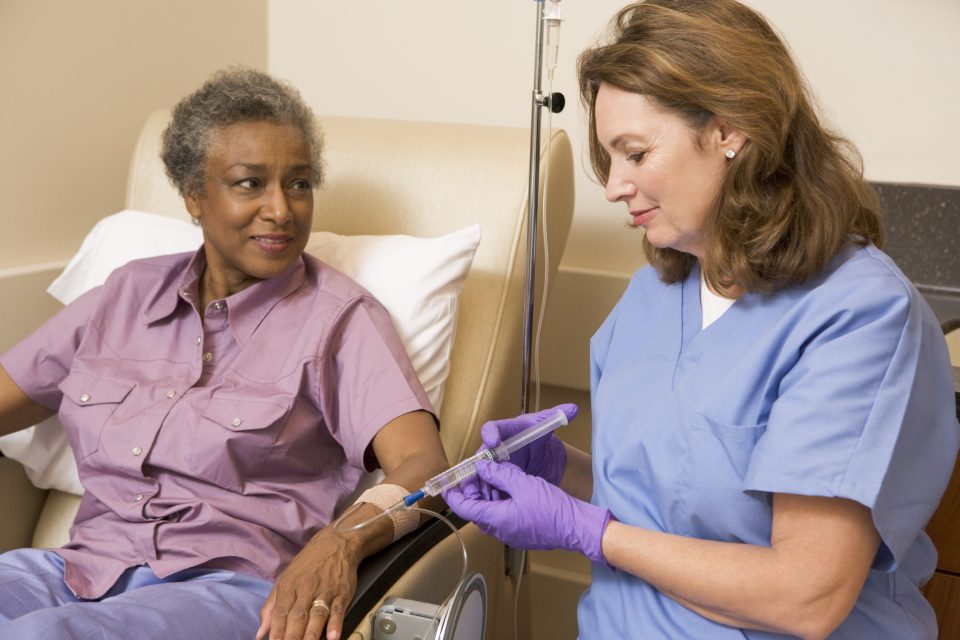
Rheumatoid arthritis (RA) patients who begin abatacept treatment before trying another biologic treatment may have higher two-year retention rates compared to patients who are not biologic-naïve, according to a recent study.
“The determination of predictors of treatment retention and differential response will assist the development of the most appropriate, individualized treatment and has the potential to reduce unnecessary adjustments in therapy,” the study authors wrote.
#TCTM19 Watkins: abatacept significantly reduced aGVHD and improved DFS on recipients of 7/8 matched grafts c/w historical CIBMTR control pic.twitter.com/654bS1wMJZ
— Aaron Logan, MD, PhD, MPhil (@hemedoc) February 23, 2019
Abatacept Retention Rates Measured in the AbataCepT In rOutiNe clinical practice (ACTION) Study
Results from the AbataCepT In rOutiNe clinical practice (ACTION) study were published in Clinical Rheumatology.
ACTION, an international, observational study, included 2,350 moderate-to-severe RA patients, of whom 673 (28.6%) were biologic naïve; the rest (n = 1,677, 71.4%) had prior biologic failure—most experiencing two or more failures (n = 949, 56.6%), while 728 (43.4%) had one previous biologic failure.
Overall two-year abatacept retention rate (95% confidence interval [CI]) was 47.9%. Patients who had never taken a biologic before were more likely to continue taking abatacept than patients with at least one previous biologic failure (54.5% vs. 45.2%) (log-rank P < 0.001). Among previous biologic failure patients, retention was greater in the one failure cohort compared to the two or more failures cohort (50.2% vs. 41.3%) (log-rank P < 0.001). The top two reasons for discontinuation were the same in the biologic-naïve and previous failure groups: lack of efficacy (61.4% vs. 67.7%, respectively) and safety (21.3% vs. 21.2%, respectively).
Abatacept is safe and effective in preventing aGVHD – data in 7/8 is vs CIBMTR control while 8/8 is placebo controlled – impressive data that should lead to approval. Congrats to @kean_leslie & study team #TCTM19 1/2 pic.twitter.com/PRWHfo7sNj
— Miguel Perales M.D. (@DrMiguelPerales) February 24, 2019
Researchers also evaluated retention predictors in 1,603 patients. New biologic patients were less likely to discontinue abatacept if they had a rheumatoid factor (RF) and anti-cyclic citrullinated peptide (anti-CCP) double positive versus double negative at baseline (hazard ratio [HR]: 0.71; 95% CI: 0.53, 0.96; P = 0.019), as were those with diabetes mellitus (HR, 0.61; 95% CI 0.38, 0.99; P = 0.043). Patients living in Germany had greater discontinuation odds compared to those living in Canada, Greece, and Italy (P < 0.001).
Patients with previous biologic failure were also less likely to discontinue abatacept if they were RF and anti-CCP double positive at baseline (HR, 0.76; 95% CI 0.62, 0.94; P = 0.035). Primary efficacy failure was associated with an increased risk for abatacept cessation (HR, 1.28; 95% CI 1.00, 1.63; P = 0.014). Higher baseline Patient Global Assessment of disease activity score (≥ 70 vs. < 70 mm) on a visual analog scale of 0–100 mm was also associated with greater odds of stopping abatacept at two years (HR, 1.26; 95% CI 1.05, 1.52; P = 0.040).
A look at using #Orencia for patients with #rheumatoid #arthritis. Based on research from Clinical #Rheumatology. https://t.co/CyQYKxPBl8
— MedPage Today (@medpagetoday) February 26, 2019
The study authors wrote, in sum, “In conclusion, abatacept retention and EULAR response rates were higher in patients who received abatacept as an earlier line of treatment and in those who were seropositive for both RF and anti-CCP; additional predictors of abatacept retention were observed by treatment line. These findings have the potential to inform the development of an individualized treatment plan for the optimal management of patients with moderate-to-severe RA.”
https://twitter.com/arthritis_bio/status/1097761725598683136







 © 2025 Mashup Media, LLC, a Formedics Property. All Rights Reserved.
© 2025 Mashup Media, LLC, a Formedics Property. All Rights Reserved.